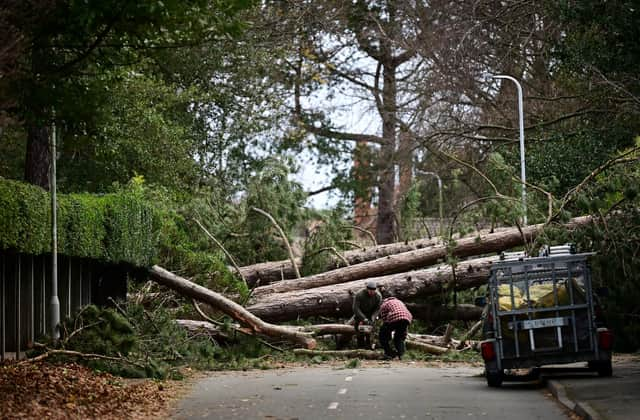Without investment in infrastructure we continue to risk critical failure - James Young


I hope, and expect, there will be reflection from all those who have ultimate responsibility for our infrastructure and much more robust mitigation will be in place; but then this is something that should have been done long before the horse bolted.
Some damage from such storms is to be expected. The repair crews on the ground deserve much credit for their tireless work in challenging conditions. However, more effective basic planning beforehand could have made a lot of this work avoidable.
Advertisement
Hide AdAdvertisement
Hide AdWhen you see photographs of a substation covered by fallen trees or a power line going through an area of tall, dense trees, you must ask why was some serious tree management not in place before this happened?
In addition, the network operators need to look at how they attempted to keep those affected informed; this was done almost exclusively via a phone number and websites. Why was it not realised that an outage as we saw recently was obviously going to affect vital lines of communications? And this isn’t just about providing information – it is about allowing our communities to provide the mutual support which is so important in times of crisis.
But these storms cannot be looked at in isolation – they are indicative of a much wider problem which the civil engineering sector has been calling for action on for many years now.
The climate predictions tell us clearly to expect more – and severer - weather issues and the experts all agree that we are just not prepared for the impact.
Our infrastructure systems – transport, energy, water, communications as well as many aspects of our built environment, are just not climate ready.
We already are in the position of having a backlog of basic infrastructure maintenance. There have been a number of consultations and enquiries on climate change, infrastructure and resilience with many subsequent reports and recommendations, but to date resulting actions have been completely insufficient.
Time is passing quickly and there is no need for more inquiries or consultations. The Institution of Civil Engineers has called for a full infrastructure audit both for the UK and in Scotland. The Infrastructure Commission set up by the Scottish Government said the same, but it is still to happen. As a nation, we (rightly) invest heavily in our health service. However, what use is a good hospital if the lights go out, the roads are blocked or their digital services go off? And infrastructure failings have a direct impact on the health of those in our communities, both physically and mentally.
Yes, as individuals, there are things we can each do to be a bit more resilient when things like Storms Arwen and Barra happen, as they will, but if we don’t invest in the resilience of our infrastructure, we will only continue to increase the risk of critical failure.
James Young BSc CEng FICE, Former Chair of Institution of Civil Engineers Scotland
Comments
Want to join the conversation? Please or to comment on this article.